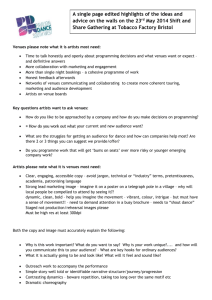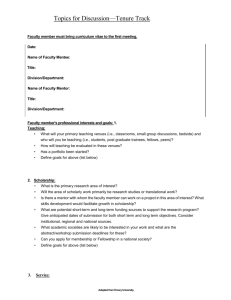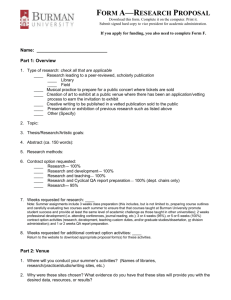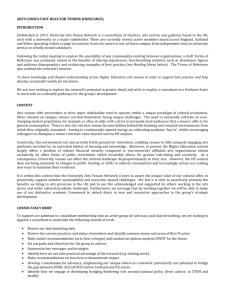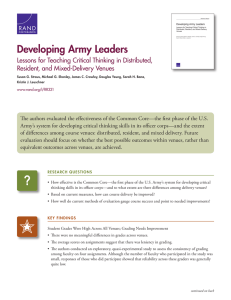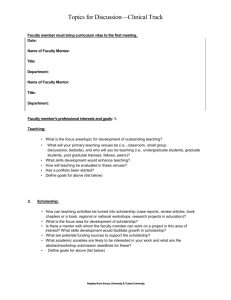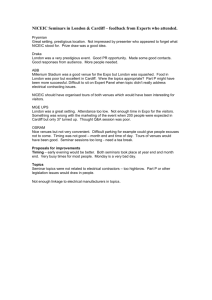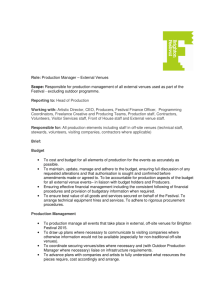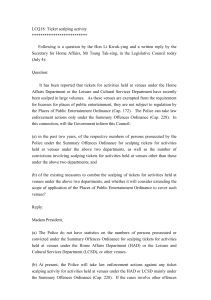Faculty Core Competencies - University of Washington
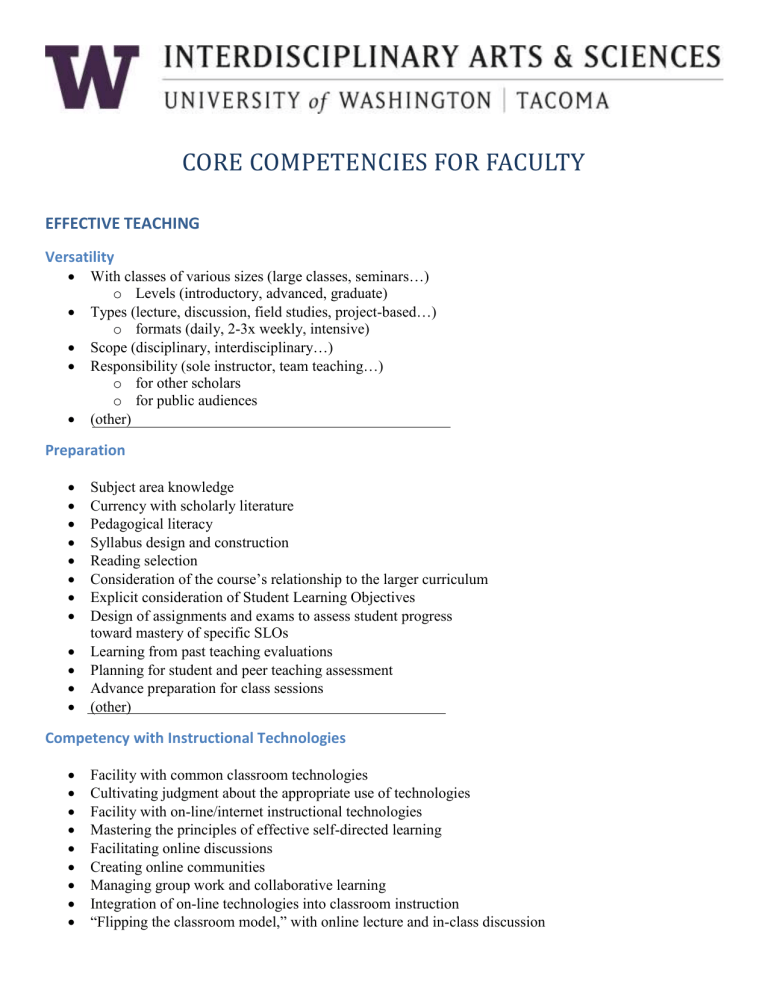
CORE COMPETENCIES FOR FACULTY
EFFECTIVE TEACHING
Versatility
With classes of various sizes (large classes, seminars…) o Levels (introductory, advanced, graduate)
Types (lecture, discussion, field studies, project-based…) o formats (daily, 2-3x weekly, intensive)
Scope (disciplinary, interdisciplinary…)
Responsibility (sole instructor, team teaching…) o for other scholars o for public audiences
(other)
Preparation
Subject area knowledge
Currency with scholarly literature
Pedagogical literacy
Syllabus design and construction
Reading selection
Consideration of the course’s relationship to the larger curriculum
Explicit consideration of Student Learning Objectives
Design of assignments and exams to assess student progress toward mastery of specific SLOs
Learning from past teaching evaluations
Planning for student and peer teaching assessment
Advance preparation for class sessions
(other)
Competency with Instructional Technologies
Facility with common classroom technologies
Cultivating judgment about the appropriate use of technologies
Facility with on-line/internet instructional technologies
Mastering the principles of effective self-directed learning
Facilitating online discussions
Creating online communities
Managing group work and collaborative learning
Integration of on-line technologies into classroom instruction
“Flipping the classroom model,” with online lecture and in-class discussion
Maintaining current and credible content
Educating students about appropriate online references
Monitoring and assessing student progress
Helping students to create evidence of learning
(other)
Delivery
Organization/Structure of class sessions
Clarity of communication
Fostering student engagement
Scaffolding learning
Management of classroom dynamics
Capacity to accommodate differences among students
Range of pedagogical approaches to advance student learning
(other)
PRODUCTIVE RESEARCH AND SCHOLARSHIP
Dedicated time to engage in research, scholarship, creative work
Focused line(s) of inquiry that make original and important contributions to knowledge
Familiarity with guidelines for the Responsible Conduct of Research
Awareness of IRB guidelines for the review of research protocols
Development of research proposal that frames scope of work, key concepts and methods to ensure rigor, reviews relevant literature, articulates the significance of the work, establishes a timetable for major milestones and project completion, etc.
Circulation of research proposal within intellectual network for feedback
Identification of potential sources of support for research expenses (i.e, fellowships, grants, etc.)
Applying for funding while undertaking less costly research activities
Engaging student assistance in research
Developing the skills of collaborative research
Participating in on-going exchange of ideas and feedback within intellectual communities with expertise relevant to project
(other)
DISSEMINATION OF SCHOLARLY WORK
Participation in national meetings, conferences, and other venues appropriate for sharing work-inprogress
Submitting proposals
Forming sessions
Networking with peers and senior faculty in area of specialization
Circulating work-in-progress within peer and senior faculty networks
Presenting work at other universities and in public venues
Soliciting expert feedback on drafts prior to presentation
Identifying credible, peer-reviewed venues for publication
Learning about normative expectations for publication in particular disciplinary and interdisciplinary contexts
Developing a schedule of publication goals consonant with major performance reviews (contract renewal, tenure and promotion decision, etc.)
Developing a strategic approach to maximizing impact
Narrowing the list of relevant venues for publications and becoming familiar with their guidelines for submission, timetables for decisions, etc.
Deciding on an optimal order of submission to relevant venues
Responding to peer review comments from editors and readers
Negotiating intellectual property, publication terms and contracts
Timely response to editorial queries, review of page proofs, etc.
Circulation of published work within expert networks
Fostering the ability to communicate with diverse audiences
(other)
PRODUCTION AND DISSEMINATION OF CREATIVE WORK
Learning about normative expectations for the peer review of creative work within the university
Identifying appropriate venues for peer review of creative work, including fellowships, competitions, juried shows, performances, and published reviews
Developing clear benchmarks for demonstrating national and international standing within a particular type of creative work
Cultivating a junior and senior peer network within one’s field dedicated to sharing and critiquing workin-progress
Cultivating teams with the potential for pursue larger or more significant projects
Participating in significant service activities associated with field of endeavor including juries, panels, public commissions, etc.
Demonstrating leadership within key professional associations
Documenting creative projects in peer-reviewed books and/or articles
(other)
SERVICE AND COMMUNITY ENGAGEMENT
Identifying appropriate venues for university service
Equitably sharing responsibility with peers
Effectively assessing who needs to be consulted to fairly represent stakeholders in service activities
Developing the good meeting and project management skills to successfully achieve the goals of service assignments
Cultivating leadership skills necessary to lead School and University initiatives
Building sustainable relationships with local and global communities closely related to the subjects of teaching, scholarly and creative work
Mastering the skills of community engaged scholarship
Identifying venues for bringing the fruits of community partnerships back to the community
Learning how community engagement can be translated into academic publication
(other)

